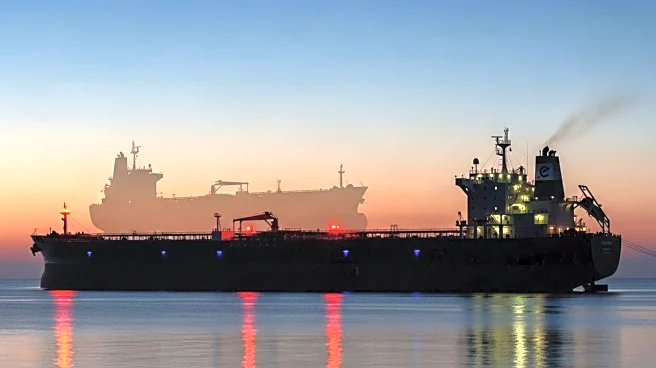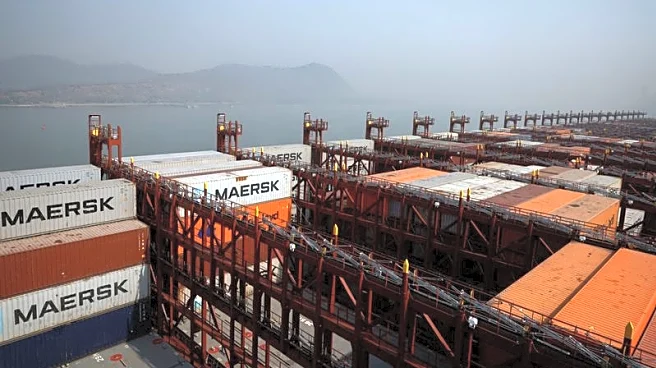What is the story about?
What's Happening?
Terminal operators at Huangdao Port in Shandong province, China, are set to enforce new measures to ban shadow fleet vessels and restrict visits by older tankers. This decision follows a notice issued by four terminal operators, which will take effect from November 1. The measures target vessels using fake IMO numbers and ships over 31 years old, aiming to curb the shadow fleet that transports oil under Western sanctions. The move comes after the United States designated an oil terminal in nearby Dongjiakou port as receiving Iranian oil carried by sanctioned vessels. Qingdao Shihua and other companies involved have not commented on the new rules, which appear to be driven by environmental concerns and increasing U.S. sanctions pressure, according to Emma Li, a China analyst with Vortexa Analytics.
Why It's Important?
The ban on shadow fleet vessels at Huangdao Port is significant as it reflects China's response to U.S. sanctions pressure regarding Iranian oil imports. As the largest entry point for Iranian oil, Qingdao port's new measures could impact global oil trade dynamics, particularly for countries reliant on Iranian oil. The decision underscores the ongoing geopolitical tensions between China and the U.S., with China defending its oil transactions with Iran despite Western sanctions. The introduction of a risk-rating system for tankers also highlights China's commitment to environmental standards and safety, potentially influencing international shipping practices.
What's Next?
The implementation of these measures may lead to increased scrutiny of oil shipments entering China, particularly those linked to sanctioned countries like Iran. Stakeholders in the global oil market, including traders and shipping companies, will likely monitor the situation closely to assess the impact on oil supply chains. Additionally, the U.S. may respond with further diplomatic or economic actions to address China's continued import of Iranian oil. The effectiveness of the new rules in reducing the presence of high-risk vessels will be evaluated over time, potentially prompting other ports to adopt similar measures.
Beyond the Headlines
The ban on shadow fleet vessels could have broader implications for international maritime regulations, encouraging stricter enforcement of vessel certification and environmental compliance. This development may also influence China's diplomatic relations with other oil-exporting nations, as it navigates the complexities of adhering to international sanctions while maintaining its energy needs. The focus on environmental concerns aligns with global efforts to reduce pollution and enhance maritime safety, potentially setting a precedent for other countries facing similar challenges.

















